Tech Support: Reaching Their Ultimate Potential
Brooklyn Tech’s ultimate frisbee team, Tech Support, has been a dedicated part of the school community since 2018. However, even with the team bringing home a victory in the New York State Championships last season, it is still searching for recognition.
Ultimate frisbee, familiarly known as “ultimate,” has been growing exponentially since the 1960s, with millions of players in over 80 countries. Ultimate is no-contact and self-refereed, played with a single flying disc and two teams of seven each defending an end zone. Points are scored by passing the disc into the opponent’s end zone. Teams have been established on national, collegiate, and club levels, but the sport has not yet found its way into the mainstream, or even New York City’s athletic league.
Tech Support won its State Championship in 2022, with the team winning eight games to secure the final victory. The competition took place in Albany and the games proved to be a true test of mental endurance for the team. Joshua Barshay (‘23) spoke of their challenges, “I think we get into our own head, like there’s a bit of a mentality issue that we have where sometimes we’re either very overconfident, which can lead to mistakes, or we [underestimate] our abilities.”
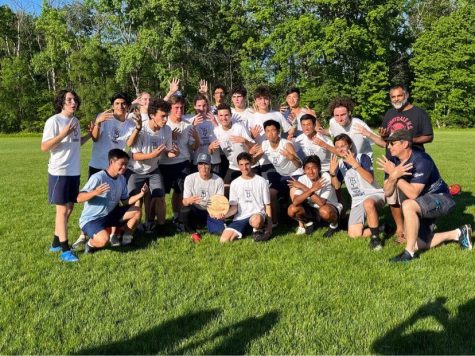
Mental blocks were defining concerns of their journey. Co-Captain Ben Nusbaum (‘23) explained, “That is something [we’ve] struggled with, not getting down on ourselves when we were doing badly and trying to stay in the game mentally…That’s the only way you can actually come back.”
Despite these challenges, the team was able to come out on top with each others’ support and encouragement. Team bonding was a large aspect of the championships, as players shared hotel rooms and spent time together on the road. “You get so much closer to these people. You play with them and basically spend 24 hours [each day] with them. It’s so great,” said Rawlins Collard (‘24).
Despite the great successes of the team, and its growing standing in Brooklyn Tech’s community, ultimate is still not recognized as a PSAL sport. New York City’s Public School Athletic League (PSAL) provides opportunities for student athletes and encourages students to engage in athletic programs. It also funds tens of thousands of student-athletes every year across hundreds of the city’s schools. Without PSAL recognition, Tech Support’s players are largely on their own in terms of leadership and funding. “We run a bake sale, and we rely a lot on parents sponsoring. But besides that, people pay for their own,” said Nusbaum. “There’s a lot of expenses that go into it.”
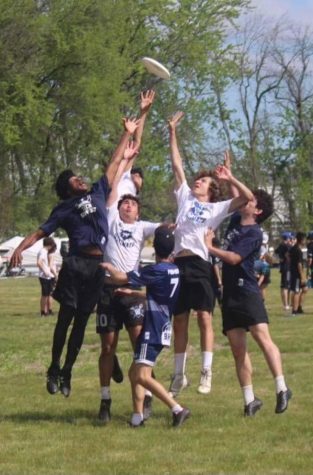
Among the reasons that ultimate is still not recognized within PSAL is its unique practice of being self-refereed when competing, something that players appreciate and aim to protect. Solomon Jackson (‘25) states, “I played a bunch of different sports, like major sports. But frisbee is the only one where there’s a lot of value placed in respect for one another, and just being honest.” ‘Spirit of the Game’ is a set of principles that’s a part of ultimate’s official rules. It requires players to know the game, and know it well, so that issues are resolved amongst the players themselves without the need for an official. Players take on the responsibility of upholding the integrity of their game. “There’s an emphasis in frisbee that doesn’t really exist in other sports on telling the truth about what happened,” said Nusbaum. However, this trait makes it difficult for ultimate to be recognized within the PSAL, as there is a risk of unresolved arguments, which is not a concern in sports with referees.
While the team has grown frustrated with the lack of PSAL recognition, many players feel that the sport’s smaller community within high schools in the country has fostered unique, tight-knit relationships amongst players and different teams. “You’ll run into your friends if you’ve been playing ultimate for a while, or you make new friends on the sidelines, whereas other sports are very competitive and serious at their games,” Zoe Theriault (‘23) said of ultimate’s competition culture.
However, having legitimacy within PSAL would do a lot to help the sport’s reputation. “There’s more seriousness around PSAL. [Ultimate] is a real sport and people don’t know that, so if it was PSAL that would help,” added Nusbaum. It’s another side effect of ultimate’s lack of legitimacy within sports leagues. Since its beginnings, ultimate has been treated as a casual pastime, not a real, dynamic sport. “It’s not seen as a very serious sport in the same way that other sports are seen as serious,” Theriault expressed. “I think that comes with how we demonstrate the sport… It’s a sport that not many people understand, just because it’s so different.” However, she added that many frisbee players do embrace the sport’s distinctive reputation. With more open-mindedness from the public and ultimate’s expanding reach in recent years, its standing in the sports world has a considerable opportunity to improve.
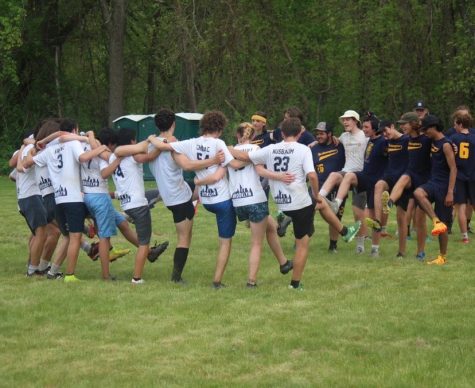
Ultimate is a sport on the rise, and Tech Support is growing with it. While ultimate can be played co-ed, Tech Support is expanding to include a separate female/non-binary team, an example of the kind of growth and development that will hopefully change perception of the sport and recruit a new generation of players. “New players, new opponents, and seeing the joy that these guys get from [playing] is what brings you back,” said Mark Dicus, one of the team’s coaches. “And winning doesn’t hurt.”

Lia Faynberg (she/her) is the Managing Editor and a Co-Editor of Sports. She appreciates that The Survey...

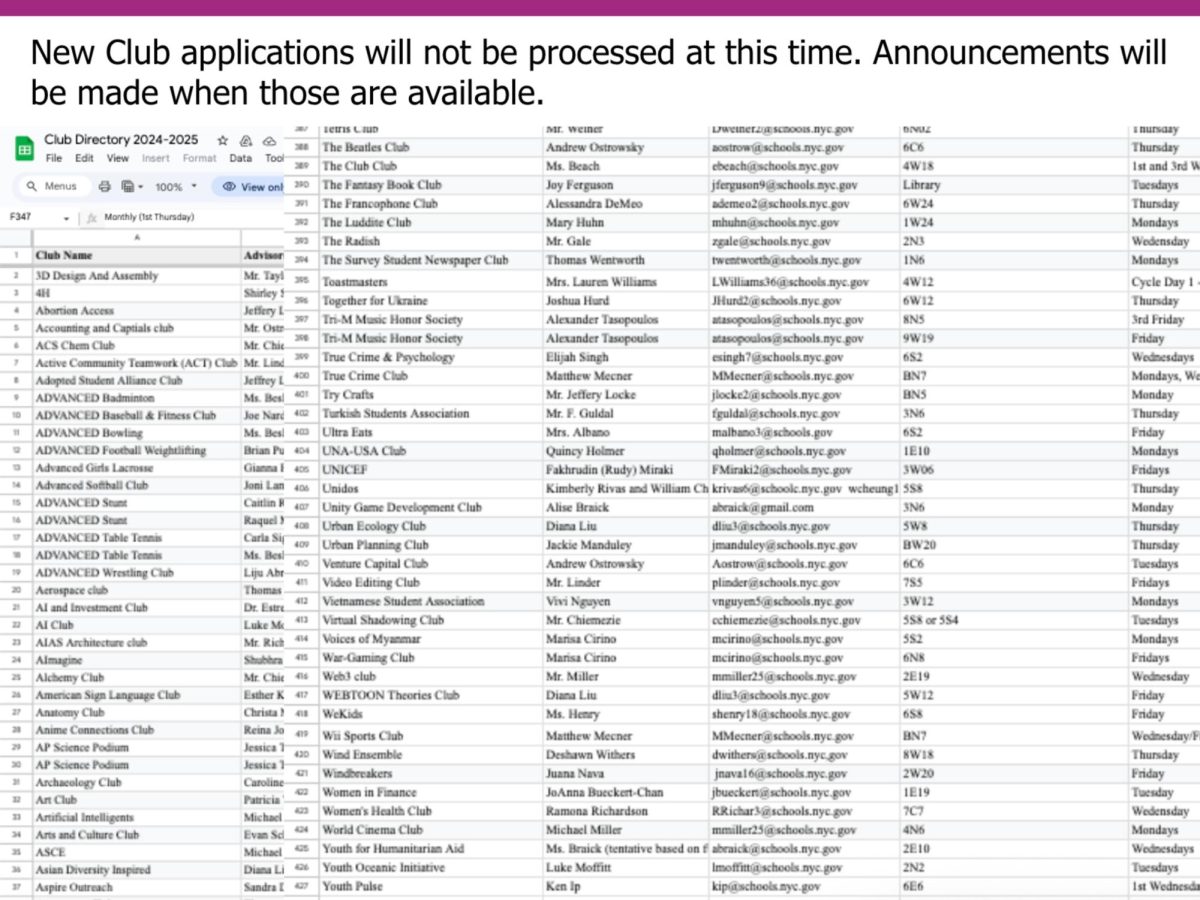





































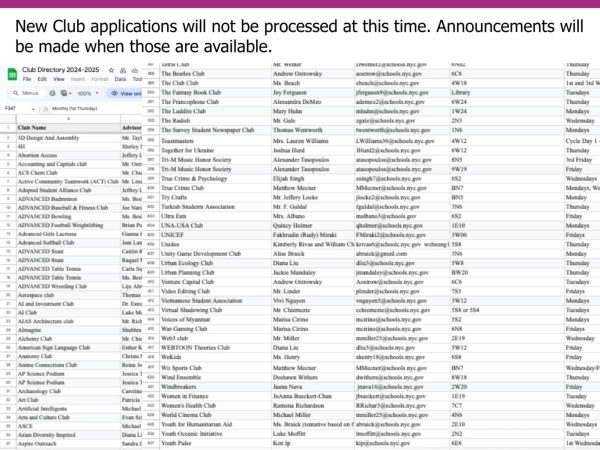


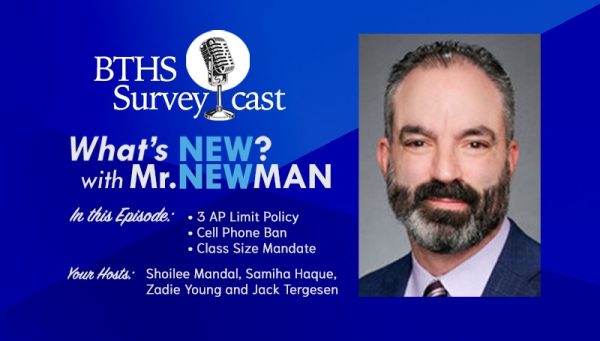
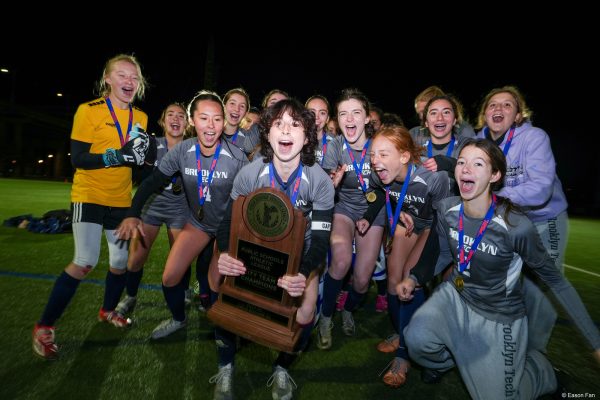
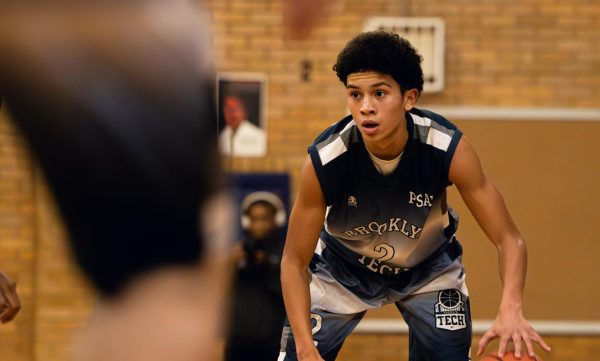
Ethan Schiff • Oct 21, 2022 at 3:32 pm The Survey Pick
Amazing work guys! Thanks so much for this article about my team.